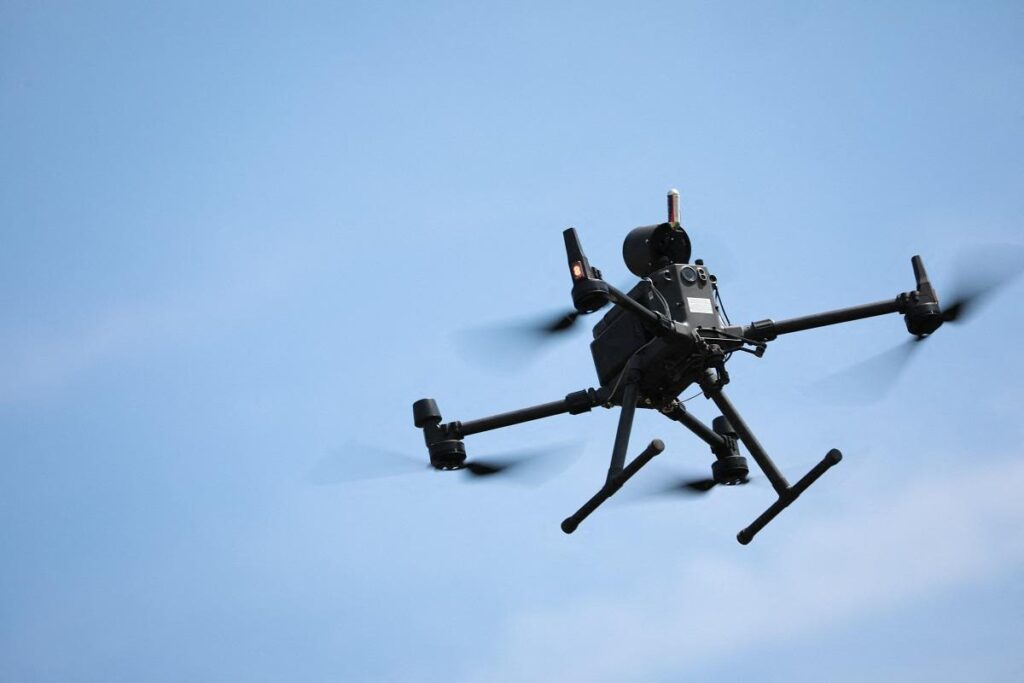In a surprising legal battle that has attracted global attention, Chinese drone giant DJI has filed a lawsuit against the Pentagon over its recent decision to designate the company as having ties to the Chinese military. The lawsuit, which marks a new chapter in the ongoing tensions between the US and Chinese tech industries, has raised questions about the implications of such a designation on DJI’s business operations and reputation. Join us as we delve into the details and implications of this high-stakes legal showdown.
DJIs Challenge to Pentagons Military Designation
DJI, a Chinese drone manufacturer, has filed a lawsuit against the Pentagon challenging the military designation they have been given. DJI argues that their drones are primarily used for commercial and civilian purposes, such as photography and videography, rather than military applications. The company claims that being labeled as a military supplier could harm their reputation and business prospects.
In response, the Pentagon has defended its decision, stating that DJI’s drones have been used by some military and government agencies. However, DJI argues that this does not justify categorizing them as a military supplier. The outcome of this legal battle could have significant implications for DJI and the drone industry as a whole, as it raises questions about the line between commercial and military technology.
Implications for Drone Industry Regulation
Chinese drone manufacturer DJI has taken legal action against the Pentagon for designating their drones as ‘military’ equipment. This move by DJI raises important questions about the regulation of the drone industry and the implications it may have on future policies. The lawsuit highlights the increasing tensions between drone manufacturers and government agencies, as the line between civilian and military drone use becomes increasingly blurred.
The outcome of this lawsuit could potentially shape the future of drone industry regulation, impacting not only DJI but also other drone manufacturers and users around the world. This case brings to light the need for clear and consistent guidelines on how drones are classified and regulated, as well as the importance of transparency and collaboration between industry stakeholders and government bodies. As technology continues to advance, it is crucial for regulatory frameworks to adapt in order to ensure the safe and responsible use of drones in various sectors.
| Pros | Cons |
| Increased clarity on drone regulations | Potential for increased legal disputes |
| Opportunity for industry-government collaboration | Uncertainty for drone manufacturers |
Navigating National Security Concerns in Drone Manufacturing
DJI, a prominent Chinese drone manufacturer, has taken legal action against the Pentagon after being designated as a company with ties to the Chinese military. The lawsuit comes amidst growing concerns about national security and the use of drones in sensitive areas. The company argues that it is not owned or controlled by the Chinese government, and that the Pentagon’s decision is unjust and damaging to their reputation.
In response to the lawsuit, the Pentagon reiterated its stance that DJI poses a potential threat to national security due to its alleged connections to the Chinese military. The ongoing legal battle highlights the challenges of navigating national security concerns in the drone manufacturing industry, as governments around the world grapple with how to regulate and monitor the use of drones in military and civilian contexts.
The Need for Clear Guidelines in Categorizing Drones
DJI, the leading Chinese drone manufacturer, has recently filed a lawsuit against the Pentagon over the classification of their drones as ‘military’. The company argues that their products are primarily used for civilian purposes such as photography, videography, and agriculture, and should not be considered as military equipment.
The lack of clear guidelines in categorizing drones has raised concerns among manufacturers and users alike. With the rapid advancement of drone technology, it has become increasingly challenging to differentiate between drones meant for commercial, recreational, or military use. Establishing transparent criteria for classifying drones is crucial to ensure fair treatment of manufacturers and to prevent unnecessary restrictions on the use of these devices.
Concluding Remarks
the ongoing legal battle between Chinese drone maker DJI and the Pentagon highlights the complexities of the increasingly intertwined world of technology and national security. As both sides continue to defend their positions, it is clear that this case will have far-reaching implications for the future of drone regulation and international trade. Stay tuned as we follow this developing story and its impact on the global drone industry. Thank you for reading.
